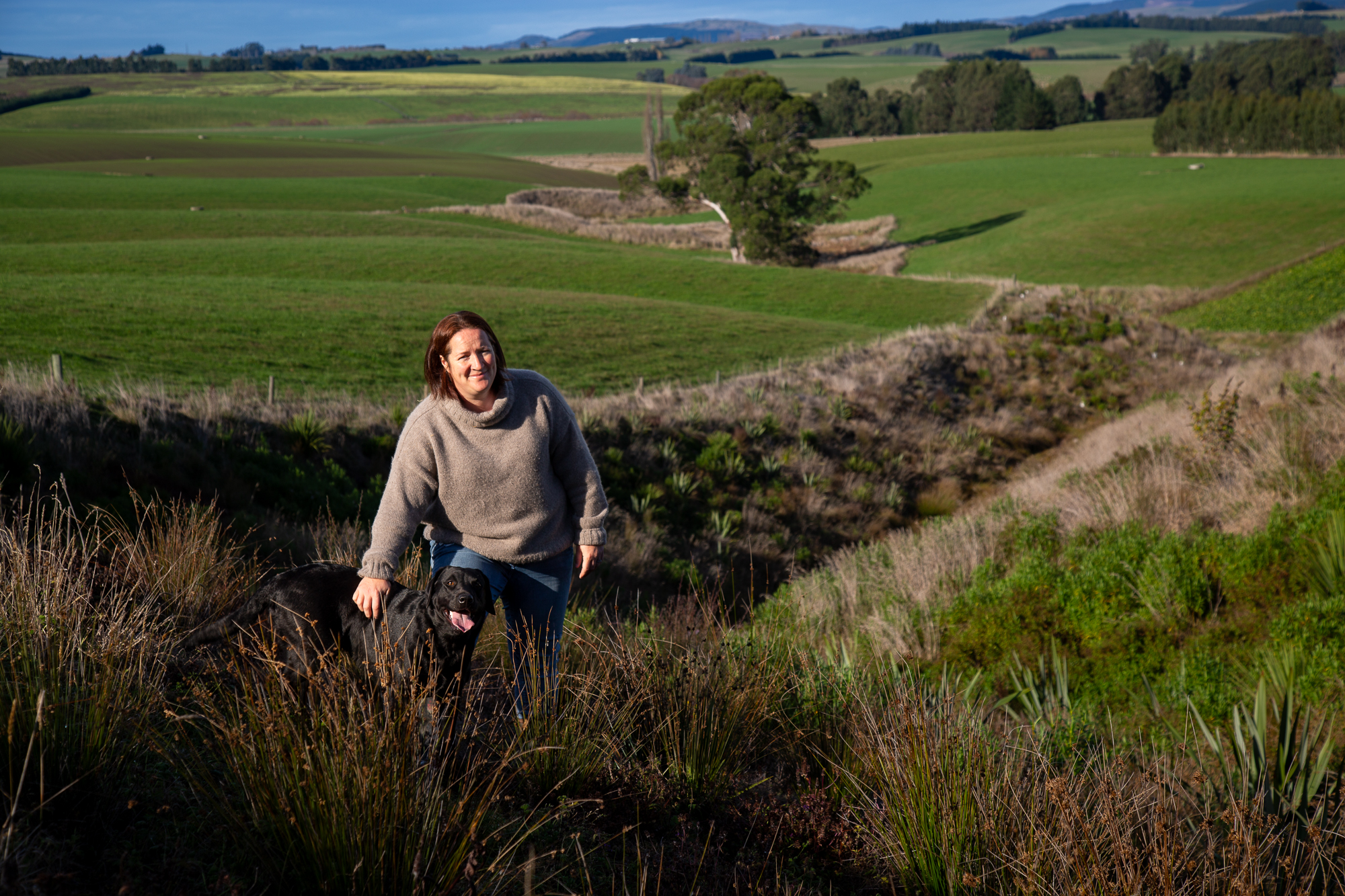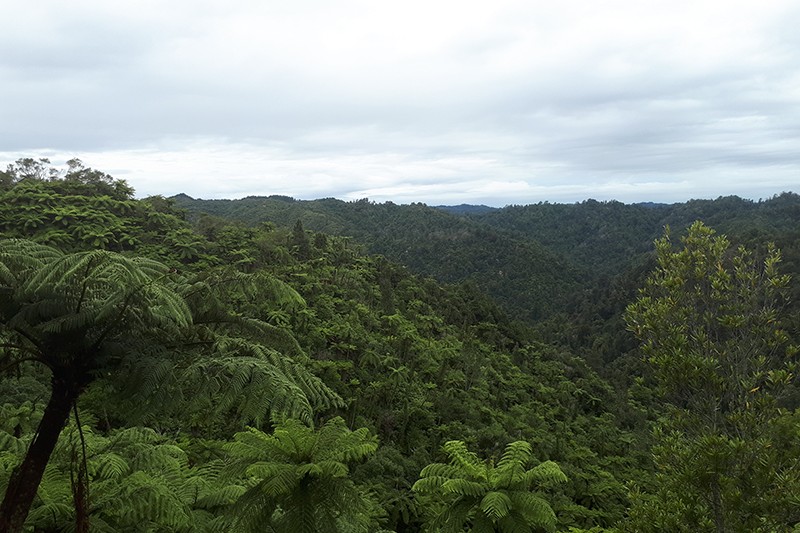New option fairer, helps stop pines
As an alternative to the He Waka Eke Noa proposals, a group of sheep and beef farmers have come up with what they say is a more equitable solution, James Hoban writes.

As an alternative to the He Waka Eke Noa proposals, a group of sheep and beef farmers have come up with what they say is a more equitable solution, James Hoban writes.
A group of sheep, beef and deer farmers have developed an alternative to He Waka’s proposed options.
Since 2014 Ben Ensor has been one of Beef + Lamb NZ’s leading farmers. He has been on their environmental reference group since 2016 and he is one of the farmers who has got off the side-lines and tackled poor policy head on. Since 2014 he has chaired farmer groups in North Canterbury, most recently the Hurunui District Landcare Group which is one of a number of community initiatives setting the gold standard for farming communities looking to demonstrate environmental stewardship and work on achieving sensible regulation.
Beef + Lamb NZ has built a network of farmers like Ensor across the country. They are sheep and beef farmers who have poured countless hours into understanding environmental policies and offering feedback and solutions when things get difficult. They are not stirrers and they are well informed.
Ensor is a member of the group that developed the alternative proposal and is at pains to point out that in offering this alternative they are not wanting to be unnecessarily difficult. They are farmers who value community, family and who are sharply aware of long-term consequences of poor policy. The group’s members cannot subscribe to He Waka in its current form because they know it will lead to good sheep and beef hill country being planted in permanent trees.
Ben understands the extent of damage that will occur to towns like his hometown of Cheviot when jobs and people disappear from a district. He understands the challenges of nutrient allocation, three waters and biodiversity but believes that in terms of potential damage to hill country futures, He Waka could trump them all.
This story is similar for other famers Ben is working with. Rick Burke, Roger Dalrymple, Graeme Gleeson, Simon Hales, Mark McCoard, Karen Middelberg, John Somerville, Justin Stevens and Kerry Worsnop. They are familiar faces when it comes to environmental advocacy. They have been go-to people for the sheep and beef and deer sectors and they have led the charge on thorny issues in their own communities.
That they have been unable to accept He Waka’s options one or two in their current format should make industry leaders pause for serious thought.
Instead of labouring the points of what they believe is wrong with He Waka, the group members have spent many hours of voluntary time trying to find a workable alternative. This has led to the public release of a two-page open letter for farmers to consider in time for providing feedback on He Waka.
Behind the letter is a lot more research and information they are willing to share with anyone who wants more details on how they have arrived at their position.
Having spent several years working to fix local nutrient rules that almost every interest group, including the regulator, admits were broken, Ensor is horrified at the prospect of a poor outcome being adopted.
“We know how hard it is to change things once they are in place.
“If we accept one of the options and then try to change it, the Government might quite reasonably tell us ‘you guys came up with this and actually we’ve got other things we need to do’.”
The key reasons the alternative is being proposed is that both He Waka options hit extensive sheep, beef and deer farms the hardest. Their proposal lobbies for a per hectare emission pricing mechanism.
“We think a progressive pricing system should be used on a per-hectare basis,” Ensor says.
He says this single universal metric allows equal examination of emission across all farms and has a strong focus upon loss to the atmosphere and therefore warming.”
The group believes their proposal would more fairly reflect the contributions from extensive farms and incentivise the right behaviours. The authors are aware that this approach would be asking intensive farmers to do more of the heavy lifting but make no apology for that because the He Waka options are stacked against extensive systems.
Ensor said intensive farms also have more levers to pull to reduce emissions, compared to a relatively low input hill country business.
“Both (He Waka) options favour intensive systems.”
He says any system with breeding animals achieving slower growth rates, which are inevitable on extensive hill country with lower pasture quality, do not come out well. The net result is that these options are a bad deal for extensive farmers and they will lead to more farmland going into trees.
“We need to be honest about it.
“Afforestation will negatively affect all farm types, rural businesses and our communities.”
He Waka’s architects are pointing to the ability for sequestration to be recognised at farm level as a reason why the proposal offers greater hope than the ETS.
Ensor says unfortunately, the sequestration farmers can be credited for is limited and is a red herring riddled with fish hooks. It is being used to buy support when in reality much farm-level sequestration would not be recognised.
“We are being asked to pay for all our emissions but we cannot claim all our sequestration.”
The group is concerned neither He Waka options provide a fair process, are likely to cause challenging administration, are not adequately informed by up-to-date science and will not fairly address land use impacts of the environment.
Ensor says they support the intent of option one, to hold individual farms to account for their own emissions. However due to the differences in efficiencies between farming systems the options will place the highest relative cost on extensive farming systems despite the fact they have the least environmental footprint.
“This will result in the continued afforestation of extensive hill country properties offsetting the emissions of more intensive farming.”
The group is proposing an alternative that advances and transforms He Waka’s option one.
Ben says they prefer the farm-level option as it gives individual farmers the responsibility for managing their business.
He says option one is better for sheep and beef with complex systems but option two might look simpler for dairy farmers. Option one is being painted as expensive but under option two farmers will have two separate contracts to manage credits for sequestration and mitigations.
“It is hard to imagine that the management and administration of these contracts will be simple or inexpensive.”
The group can certainly not be accused of trying to dodge environmental responsibility or lacking the commitment to put time into developing workable solutions.
“We firmly believe that every farmer has a personal responsibility for the use of natural resources.
Ensor says there are large differences in farm systems, production levels and notably the externalised loss of contaminants, including greenhouse gases, to receiving environments. This needs to be recognised.
The group is asking for farmers who agree with their proposal to submit their support to He Waka before Sunday, March 27, 2022 via email: yourfeedback@hewakaekenoa.nz
For further information contact:
Ben Ensorssco@outlook.co.nz
Graeme Gleeson gbg.redley@xtra.co.nz




